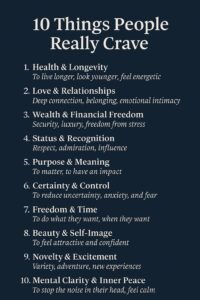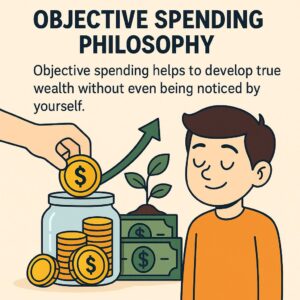
In this blog post, I want to talk about something I’ve personally thought about a lot:
Do you really need to talk loudly?
Do you need to be a loud person to be heard in this world?
Or… can you be silent and still be powerful?
From my point of view, I think you need to be both—depending on the situation. The real wisdom is in knowing when to speak and when to stay silent. So let’s try to explore this with some real-life perspective.
Let’s assume you have enough intelligence and emotional maturity to read the room and assess the energy around you. If that’s the case, then you already have a huge advantage. What you can start doing is evaluating whether a situation is actually worth your energy—especially your emotional energy.
When the Room Has Low Emotional Intelligence
Sometimes, you’ll be surrounded by people who just don’t get it emotionally. They aren’t self-aware. They react, provoke, mock, or try to bring others down without a second thought. If you’re engaging with them, chances are you’re going to be drained—while they walk away unaffected. Why? Because they’re used to it.
Take the corporate environment, for example. I’ve met people in professional settings—and even some of my own friends—who would go out of their way to put others down. Some do it subtly, some blatantly. But their intention is the same: to mess with your self-confidence.
If you’re not emotionally intelligent and logically grounded at this point, then you’re basically walking straight into their trap. It’s like paving your own path toward burnout, frustration, and even self-doubt.
Understand This First: They’re Trained for This
Let’s pause here.
When someone makes a negative comment or tries to put you down, understand that even that one word—yes, even a sentence—takes energy. It’s not coming from nowhere. But for them, it feels effortless. Why? Because they’ve practiced it. It’s become second nature.
Think of it like brushing your teeth. The first time you learned it as a kid, it probably felt hard. But over time, it became automatic. That’s exactly how it works with people who’ve been toxic for years. Whether it’s learned behavior, trauma from their past, or just their personality—that’s how they operate now.
So when you get triggered and emotionally respond, just know this: you’re not trained for it like they are. If you’re reading this blog, chances are you’re still trying to figure out how to handle these moments wisely. And that’s perfectly okay. That’s what we’re doing here—learning and growing.
Fighting Them Is Like Racing an Olympic Runner
Trying to argue or emotionally confront someone like that—when you’re still figuring out your responses—is like trying to race an Olympic sprinter when you’ve just started running.
You’re going to exhaust yourself. You’re going to lose.
Not because you’re weak—but because you’re stepping into their arena, where they’ve trained for years.
And that’s why I say: don’t try to fight in a ring that was never meant for you.
Instead, let’s look at another path.
Emotional Energy Has to Land Somewhere
Imagine this analogy: you’re digging a hole, hoping to find water. You keep digging and digging, investing your energy—but there’s no water. Eventually, you stop. Why? Because you realize you’re getting nothing back.
Same thing with people.
If someone keeps mocking or provoking you, they’re investing energy. And if they don’t get any emotional reaction from you—not even a flicker—they’re digging a dry hole. Eventually, they’ll stop. They’ll either get bored, confused, or move on. You’ve become “unusable” in their pattern.
That’s power. Real, internal, silent power.
But here’s the thing—it must be genuine. You can’t fake it. If you pretend you’re okay on the outside but you’re boiling inside, that’s not real emotional strength. That’s acting.
True control comes from within.
How Do You Get That Level of Emotional Control?
The answer is mindfulness.
The answer is disengagement.
By practicing disengagement, you’re not being passive. You’re protecting your energy. You’re pulling back and resetting your mind to a calm, stable state. One major benefit of this is dopamine regulation. Dopamine is often what fuels emotional volatility—especially when we’re exposed to triggers.
When you reduce those surges and get back to your emotional baseline, you become harder to trigger. You’re no longer a victim of your reactions.
This is something I talk about more deeply in my book, where I explain how you can train yourself to get effective emotional stability—not by doing more, but by doing nothing, in the right way.
Final Thought: You Don’t Need to Be Loud. You Just Need to Be Clear.
You don’t have to prove anything to anyone by being loud or reactive. Sometimes, saying nothing is more powerful than saying everything.
If you can reach that level of clarity and calmness—even in the middle of chaos—you’ve already won.
Thanks for reading this. If you made it to the end, I truly believe you’re ready to grow stronger emotionally. Don’t try to win every fight. Just learn when to walk away—and walk away in peace.
If this resonated with you, I invite you to explore my book:
“How to Get Everything by Doing Nothing”
It dives deeper into these topics with practical steps to build your emotional power. You can find the link below this post.
See you in the next blog!
Disclaimer: This blog is for educational and reflective purposes only. It is based on personal observations and general principles of emotional intelligence. It does not constitute professional mental health advice. If you’re dealing with severe emotional stress or trauma, please consult a qualified and licensed professional.


